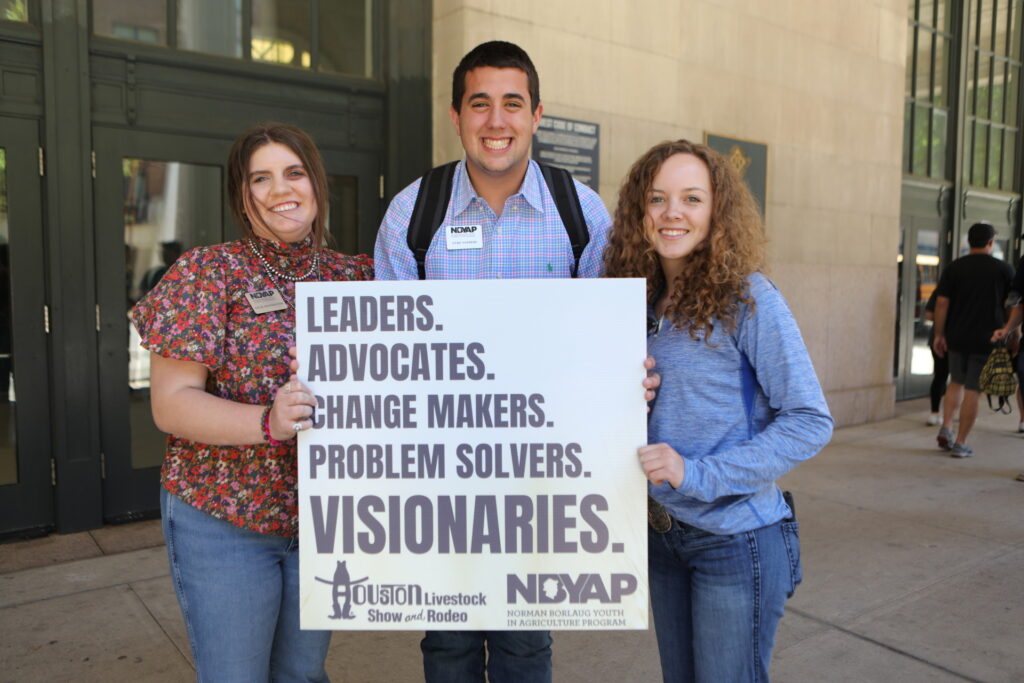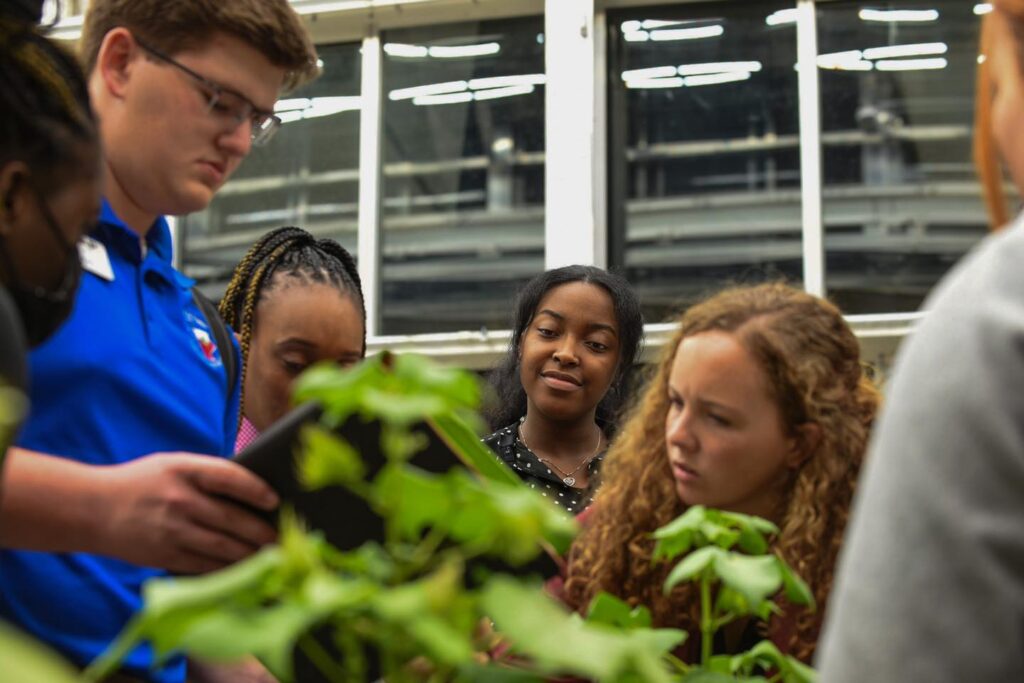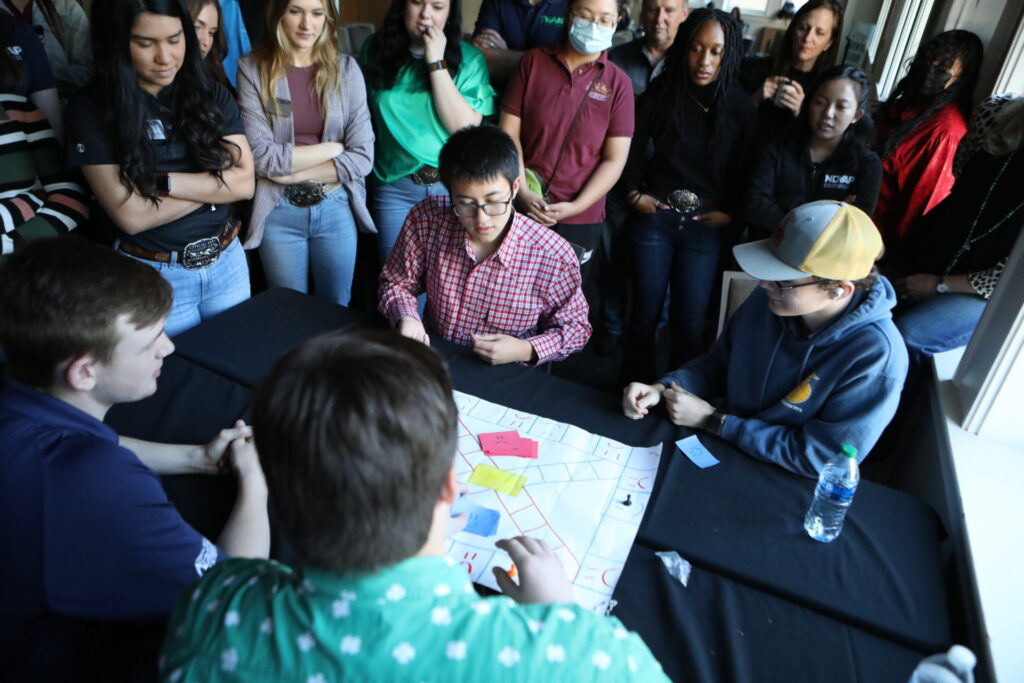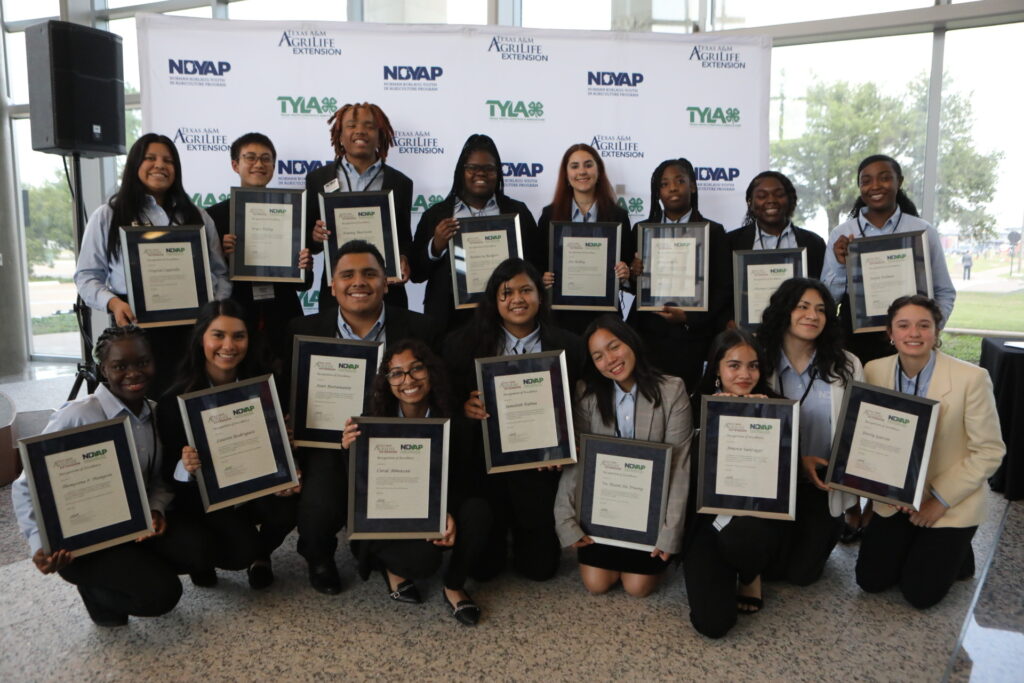Norman Borlaug Youth in Agriculture Program completes first year
Youth program contributes to creating outstanding leaders
High school students who will be industry leaders in the future are addressing “wicked problems” of today as a part of the first year of the Norman Borlaug Youth in Agriculture Program, NBYAP, through the Texas A&M AgriLife Extension Service.

The Texas Youth Livestock and Agriculture, TYLA, program of the Texas 4-H Youth Development Unit, part of AgriLife Extension, is committed to advancing a community of promising youth leaders to confront complex challenges in agriculture.
The TYLA program is collaborating with the Norman Borlaug Youth in Agriculture Program– an academic enrichment program for outstanding high school students around Texas. The NBYAP is an initiative of AgriLife Learn, and the goal of this collaboration is to “ignite the Norman Borlaug spirit” in program participants by exposing them to various agriculture-related challenges.
Norman Borlaug, Ph.D., for whom the institute was named, was a Nobel Peace Prize laureate and considered the father of the Green Revolution. His development of a dwarf wheat is credited with saving the lives of millions of people.
The why
In the program, Texas 4-H faculty members, Texas A&M University professors and industry professionals support students through a multi-faceted educational strategy paired with instilling proven professional habits. The program hopes to have a positive impact on the trajectory of the next generation of leaders.
Billy Zanolini, Ph.D., Texas 4-H Youth agriculture and livestock specialist, Bryan-College Station, leads the TYLA program.
“TYLA faculty members and collaborating educators have observed gains in teamwork, collaboration and understanding since we launched in November,” Zanolini said. “They have all been working diligently on the ‘wicked problems’ of food insecurity, water insecurity and land fragmentation for months.”
The planting season
The program’s first phase, called The Planting Season, was held in College Station in November. About 35 students from both rural and urban backgrounds merged to create friendships centered around making a difference. Students gained exposure to multiple aspects of the agriculture industry through a fast-paced and rigorous schedule. Some of the topics included ruminant nutrition and wheat planting. Participants also participated in relationship-forming activities.

“The rural students were recruited from 4-H youth holding statewide leadership positions,” Zanolini said. “For the urban students, we formed crucial partnerships with Harris County school districts. Students completed a comprehensive application that was reviewed by the TYLA selection team.”
The Planting Season sessions included involvement from the Texas A&M College of Agriculture and Life Sciences, teambuilding at Texas A&M ChallengeWorks, immersive experiences at the Texas A&M Poultry Science Center, and various science-based activities. Additional benefits included exposure to a college campus and networking opportunities.
The growing phase
The second phase, called The Growing Season, was held in Houston, in March. Houston was selected as the pivotal location to expose students firsthand to an urban setting where they could see the challenges currently facing the agricultural industry and urban areas.

“The collaborative experience provided through the NBYAP has enabled urban and rural leaders to identify our common ground on major issues, including food insecurity in Texas,” said Amy Kaye Mathis, a rural participant from Kleberg County. “As advocates, we must find solutions as we work together to educate consumers in a manner that changes the public perception of agriculture. This change has the potential to positively affect markets and legislation that will help to feed our growing population.”
During this phase, the youth dove into the world of “gaming” and created board games as a hands-on vessel for solving current agricultural issues. The Houston Livestock Show and Rodeo was a key supporter of this effort and provided the location.
The harvest season
The final phase, called The Harvest Season, was held in College Station in May. During this phase, students shared presentations and received their educational grants.

“Through the NBYAP, I have learned about serious issues Texas is facing,” said Andrew Childress, a rural participant from Henderson County. “I have learned about common causes of food insecurity, the importance of supporting food banks and the responsibility we all have to help others. From touring H-E-B warehouses, wheat fields and poultry processing rooms, the program’s impact on me has been astronomical.”
“Wicked Problem” capstone presentations allowed youth to share what they learned in the program and discuss their plans for solving the issues currently facing the agriculture industry.
“The Harvest Season phase showcased the student’s work over the past six months,” Zanolini said. “Teams drew on the new relationships and the trust built by experiences in the program. Student teams equally divided by rural and urban representatives proposed potential solutions to the wicked problems that were identified.”
In addition to the life-long friendships, experiences and knowledge gained in the program, each participating youth also received a $2,500 educational grant courtesy of the program’s many sponsors.
Moving forward
“This program helped me understand the values of agriculture in today’s world,” said Tommy Morrison, an urban participant from the Houston Independent School District. “Prior to being a part of this program, my understanding of ‘wicked problems’ in agriculture was minimal. With the help of this program, I now can act on these problems by creating solutions with the information provided by the program.”
He added the program has also allowed him to “put myself out there to a diverse group of people and get out of my comfort zone.”
Program coordinators said as the first year of the NBYAP comes to a close, it is evident that the youth of Texas selected to participate in the program are now aware of the challenges facing the state and are interested in finding solutions.
“We are committed to building better collaborations and relationships between urban and rural communities through a leadership experience,” Zanolini said. “Hard problems are better solved by leveraging the strength of differing backgrounds and perspectives. We truly believe agriculture connects all of us, and the NBYAP is the only program of its kind.”
To learn more about the Texas 4-H Youth Livestock and Agriculture program, visit texasyouthlivestock.com. To give in support of the youth in the program, visit texas4hfoundation.org.
This story was written by Meghan Mangold and Callie Cline.


